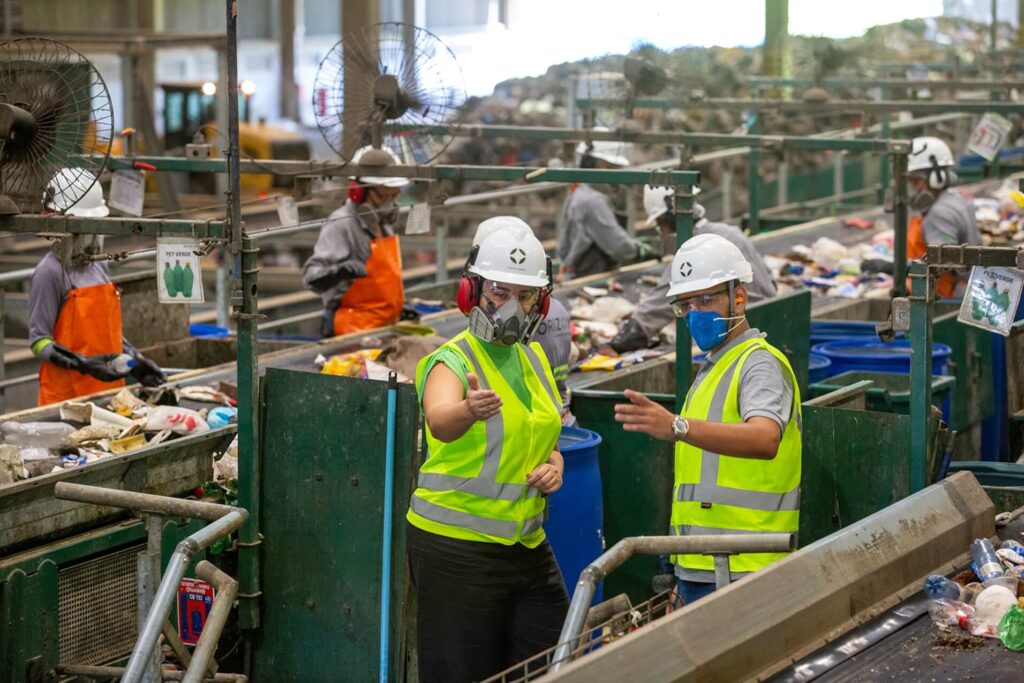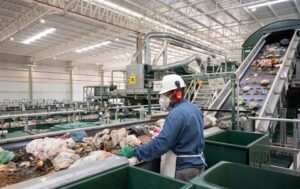
Decree No. 11,413, which establishes the Recycling Credit, benefits waste management by implementing mechanisms that promote greater control, efficiency, and economic incentives for reverse logistics and recycling.
Waste management is a major challenge for society and public authorities, especially in urban areas, where the highest concentration of waste disposal occurs. The impacts of improper disposal include:
- Greenhouse gas emissions, contributing to air pollution;
- Soil degradation due to contamination by harmful substances;
- Compromise of the water table;
- Potential increase in the spread of diseases among people and animals.
We must also mention the economic loss that occurs when waste that could be directed to recycling, composting, or even clean energy generation is poorly managed.
Therefore, the enactment of a decree like No. 11,413 and the establishment of the Recycling Credit are essential to advance the implementation of structured reverse logistics systems, promote the circular economy, and foster the socioeconomic inclusion of waste pickers, strengthening sustainability in the country.
How the Recycling Credit Benefits Waste Management
Creation of Credit Certificates
Decree No. 11,413 establishes three certificates aimed at offering tracking tools, proof, and financial incentives for companies to meet their reverse logistics and recycling targets.
- CCRLR: Proves the return of recyclable waste to the production cycle, encouraging proper disposal and material reuse;
- CERE: Encourages investments in structuring projects that improve infrastructure and promote the social inclusion of waste pickers;
- Future Mass Certificate: Encourages early investments in structured systems for future recovery of recyclable waste.
These certificates encourage companies to implement strategies based on circular economy and reverse logistics.
Promotion of Social Inclusion
A major positive point of this decree is the prioritization of the integration of waste pickers and cooperatives into reverse logistics systems, promoting:
- The formalization and regulation of waste picker organizations;
- The transfer of assets acquired by structuring projects to cooperatives and associations;
- Increased income and socio-productive inclusion of workers in the sector.
This strengthens the recycling chain and regulates the active participation of waste pickers, recognizing their essential role in waste management.
Strengthening of Reverse Logistics
The decree sets clear guidelines for implementing and operating reverse logistics systems, such as:
- Expansion of infrastructure (drop-off points, sorting and recycling units);
- Collaboration between companies and management entities;
- Standardization of processes and use of technologies such as the National Solid Waste Management Information System (Sinir), which improves traceability of recyclable materials.
This gives companies more clarity and support to achieve their recycling and reverse logistics targets, and encourages partnerships with companies like Orizon, which manage waste responsibly and sustainably.
Circular Economy
The circular economy is a key concept in minimizing solid waste problems. Therefore, the decree encourages:
- Waste reduction at the source and increased recycling;
- The use of inputs with lower environmental impact and higher recyclability;
- The production and consumption of recycled products.
This stimulates the transition to a circular economy, where waste is reused as input, reducing natural resource extraction and environmental impacts.
- Learn what Circular Economy is
Economic Incentives
Today, sustainability goals are essential for company development, to the point that investment funds are being created focused on such projects. Companies now understand there are increasing economic benefits in complying with socio-environmental laws such as the Carbon Credit program.
The creation of certificates allows companies that invest in recycling and reverse logistics to monetize their efforts. By acquiring these certificates, companies can:
- Demonstrate compliance with regulatory targets;
- Enhance the market value of their sustainability initiatives;
- Attract investors aligned with ESG (environmental, social, and governance) criteria.
Transparency and Traceability
With the requirement to trace waste through Sinir and electronic invoices, the decree ensures:
- Greater transparency in recycling processes;
- The integrity of information on the masses of waste collected and recycled;
- Regular audits to prevent fraud.
Working with companies like Orizon, which trace their entire operation, ensures that reverse logistics targets are reliably met.
Benefits for Municipalities
By including public selective collection systems in structuring projects, the following can occur:
- Improved solid waste management infrastructure in municipalities where it is nonexistent or inadequate;
- Promotion of environmental education for proper waste disposal among the population;
- Creation of jobs for the local community;
- Improved pollution and health issues caused by improper waste disposal.
This strengthens public urban cleaning services.
Decree No. 11,413/2023 is a milestone for waste management in Brazil. It encourages the circular economy, strengthens recycling infrastructure, and values social inclusion. With clear and efficient mechanisms, the decree helps achieve the goals of the National Solid Waste Policy (PNRS), contributing to a more sustainable and inclusive waste management model in the country.
- At Orizon, solid waste is seen as a great economic opportunity. Discover how the company operates in its Ecoparks.



